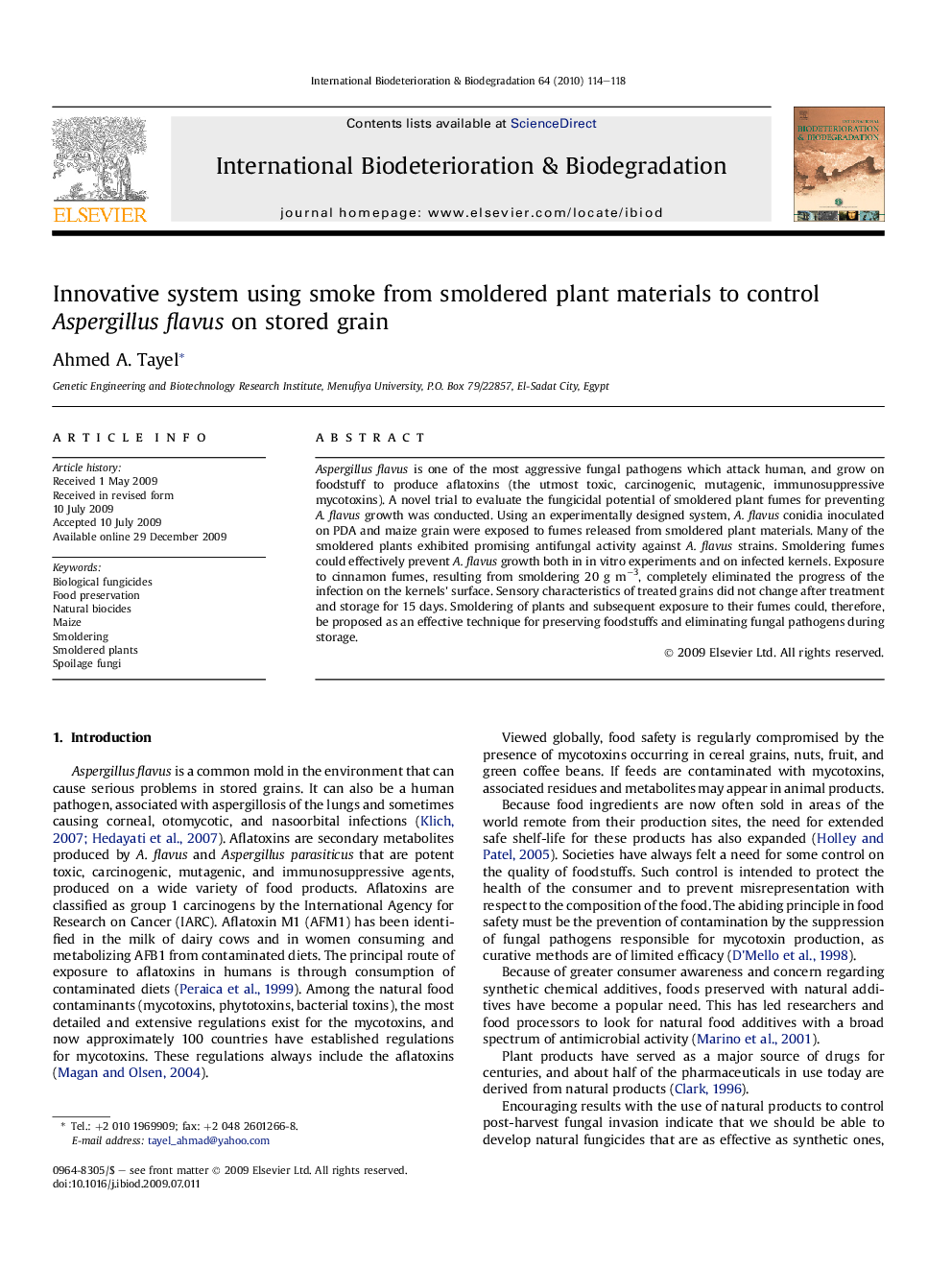| Article ID | Journal | Published Year | Pages | File Type |
|---|---|---|---|---|
| 4365722 | International Biodeterioration & Biodegradation | 2010 | 5 Pages |
Aspergillus flavus is one of the most aggressive fungal pathogens which attack human, and grow on foodstuff to produce aflatoxins (the utmost toxic, carcinogenic, mutagenic, immunosuppressive mycotoxins). A novel trial to evaluate the fungicidal potential of smoldered plant fumes for preventing A. flavus growth was conducted. Using an experimentally designed system, A. flavus conidia inoculated on PDA and maize grain were exposed to fumes released from smoldered plant materials. Many of the smoldered plants exhibited promising antifungal activity against A. flavus strains. Smoldering fumes could effectively prevent A. flavus growth both in in vitro experiments and on infected kernels. Exposure to cinnamon fumes, resulting from smoldering 20 g m−3, completely eliminated the progress of the infection on the kernels' surface. Sensory characteristics of treated grains did not change after treatment and storage for 15 days. Smoldering of plants and subsequent exposure to their fumes could, therefore, be proposed as an effective technique for preserving foodstuffs and eliminating fungal pathogens during storage.
